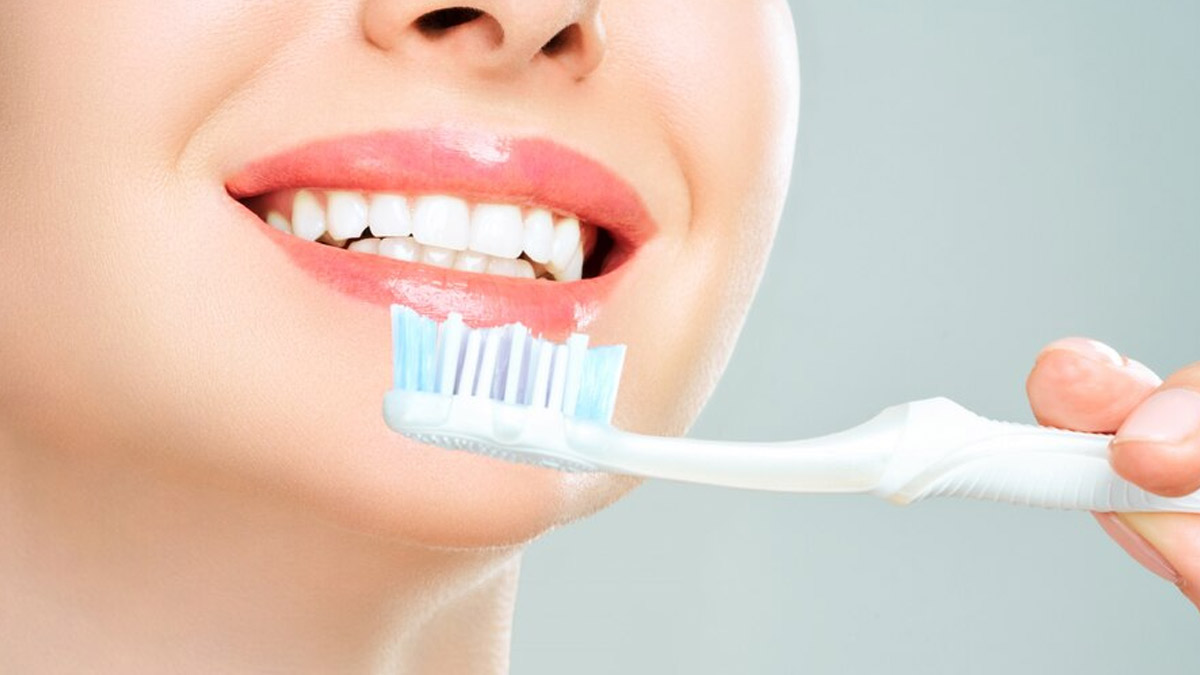
Most of the systems and organs in our body are interconnected. For instance, our gut health is directly or indirectly linked to our oral health. In fact, Dr Nandita Shenoy, Associate Professor, Manipal College of Dental Sciences, Mangalore, suggests that poor digestion can have implications for oral health and show oral manifestations like white or red lesions and oral ulcers.
Table of Content:-
Speaking with the OnlyMyHealth team, Dr Shenoy explains the link between the two and shares common digestive disorders and their impact on oral hygiene and wellness.
The Link Between Poor Digestion And Oral Health

According to Dr Shenoy, digestive issues can impact the absorption of essential nutrients, which are crucial for maintaining a healthy mouth, including teeth and gums. Additionally, certain eating and digestive disorders can lead to acid reflux, which can erode tooth enamel and contribute to dental problems.
These include conditions such as anorexia, which causes individuals to obsess over their weight and what they eat, and bulimia nervosa, a 'binge and purge' eating disorder.
The expert shares that these episodes lead to oral ulcers and erosion of tooth surfaces, leading to sensitivity and intolerance to cold and sweet food items.
Other common digestive issues that can affect your oral health include:
Gastroesophageal Reflux Disease (GERD)
With GERD, stomach acid refluxes back into the oesophagus, causing heartburn and perhaps harming the lining of the oesophagus. This backwash of acid can harm the mouth, increasing the risk of cavities, sensitivity in teeth, and erosion of the enamel.
Dr Shenoy says that patients with acid reflux and heartburn often report a foul taste in the mouth and, on examination, are seen with "dental erosion" or "acid erosion," tooth sensitivity, and discolouration.
Gastritis
According to a study published in the Middle East Journal of Digestive Diseases (MEJDD), some studies have found a direct association between chronic gastritis caused by Helicobacter pylori (H. pylori) infection and poor periodontal health. Gastritis occurs when the lining of the stomach gets swollen and inflamed. H. pylori is a bacteria, which is a common risk factor for the condition.
Dr Shenoy says, “Dry mouth might result from the stomach lining producing less saliva when it is irritated (as in the case with gastritis).”
According to her, saliva supports dental health by neutralising acids. Therefore, when saliva production is decreased, gum disease and cavities can become more likely, along with other symptoms, including bad breath.
Also Read: Fermented Foods May Improve Digestive Health But It Isn't For Everyone; Who Should Avoid It
Irritable Bowel Syndrome (IBS)

 IBS is an intestinal disorder that leads to stomach pain, diarrhoea, constipation, and changes in the appearance of stool.
IBS is an intestinal disorder that leads to stomach pain, diarrhoea, constipation, and changes in the appearance of stool.
Dr Shenoy says, “Some research points to a potential connection between IBS and oral health issues, such as halitosis (poor breath) and burning sensations in the mouth.”
Crohn's Disease and Ulcerative Colitis
Patients with Irritable Bowel Disease (IBD), such as Crohn's disease or ulcerative colitis, may develop intestinal damage and inflammation, making it difficult for them to absorb nutrients from their meals, notes Dr Shenoy.
She suggests that this may result in insufficiencies in vital nutrients, including calcium, iron, and vitamin D, all of which are required for strong teeth and gums.
Moreover, individuals with IBD may have diarrhoea, rectal bleeding, weight loss, exhaustion, and malnourishment. They may also have a weakened immune system, which is why they may also get mouth ulcers, enlarged gums, and oral infections, the doctor adds.
Celiac Disease

Celiac disease is an autoimmune condition in which the body negatively reacts to foods containing gluten. Dr Shenoy says, “Deficits in calcium, vitamin D, and vitamin B12 are among the nutrients linked to celiac disease that might impact oral health and raise the risk of dental issues.”
Furthermore, they could have oral ulcers, recurrent canker sores, and flaws in their dental enamel, she adds.
Also watch this video
How we keep this article up to date:
We work with experts and keep a close eye on the latest in health and wellness. Whenever there is a new research or helpful information, we update our articles with accurate and useful advice.
Current Version